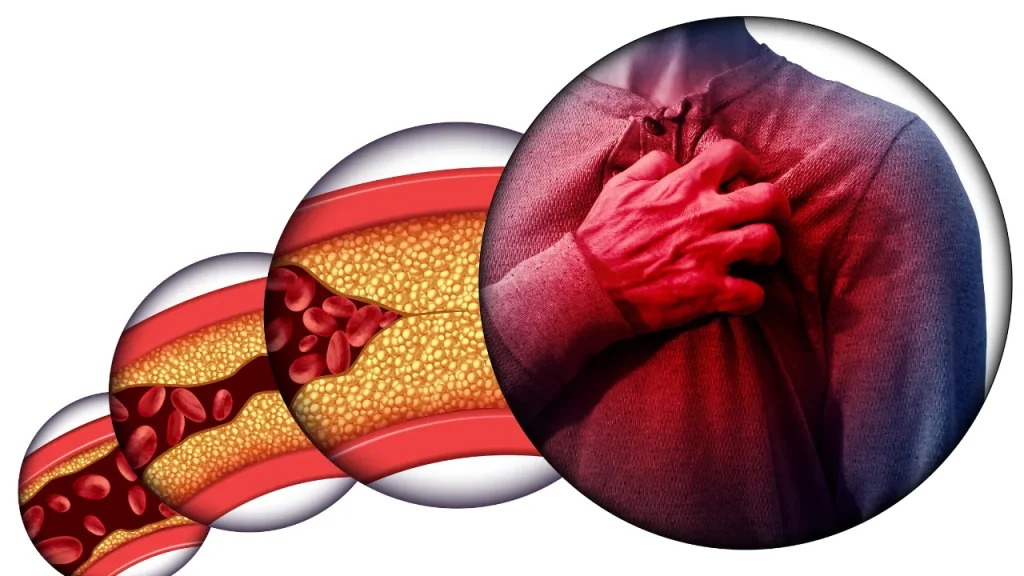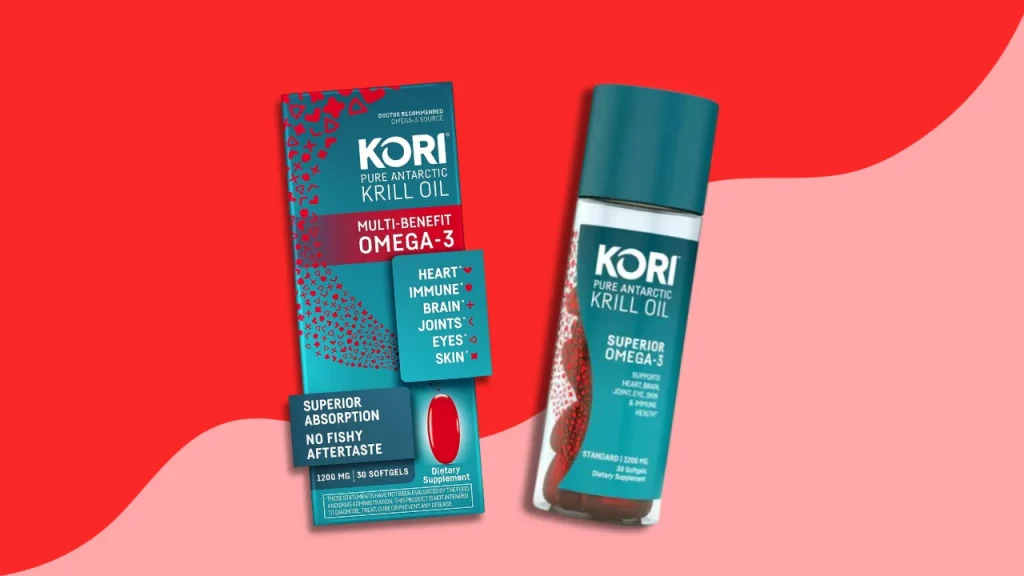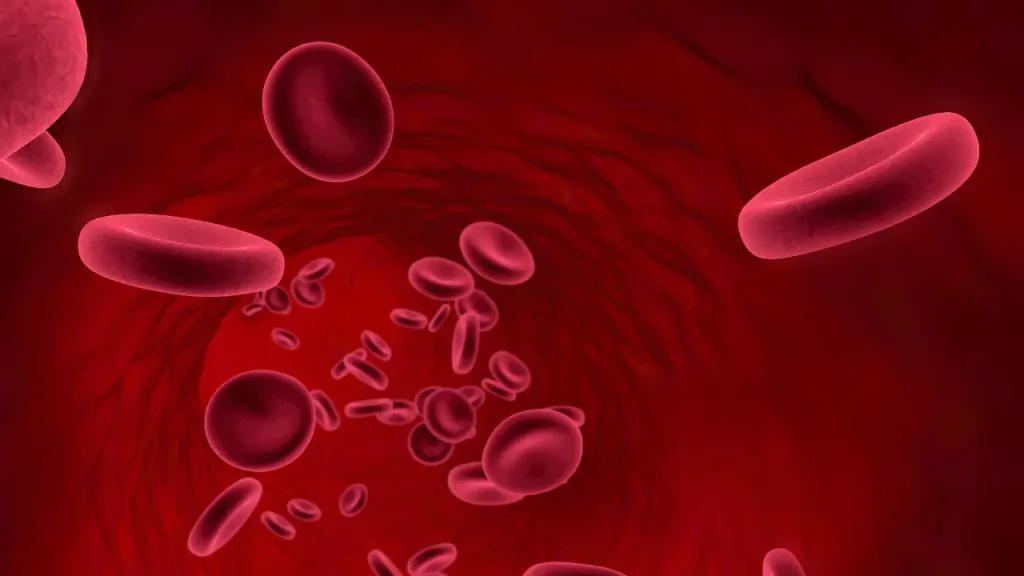Heart health is crucial to overall health; after all, the continuous operation of our heart is essential to support all bodily processes. Unfortunately, conditions relating to the heart are increasingly common in this day and age. Research has shown that heart disease is now the most common cause of death in the United States, with one person succumbing to a cardiovascular condition every 33 seconds. Thankfully, there are steps you can take to avoid becoming a part of this statistic.
In this article, we will give an in-depth look at atherosclerosis, often referred to as the “hardening of the arteries.” The following sections will cover the condition’s causes, treatment options, prognosis, and more. We’ll also examine products that are considered by some to be the best supplements for atherosclerosis.
You May Also Like:
CoQ10 Supplements Face Off: Qunol Liquid CoQ10 vs MitoQ
From Stress to Serenity: Tap into the Healing Power of Anti-Stress Supplements
Accelerate Your Way Toward a Healthier Heart: Try Supplements for Atherosclerosis to Enhance Vitality is an original (NewsHealthWatch) article.
Understanding atherosclerosis
Atherosclerosis is a chronic condition that affects the blood vessels in our bodies. It occurs when fatty deposits, cholesterol, calcium, and other substances accumulate on the inner walls of arteries. Over time, these deposits harden and narrow the arteries, restricting blood flow. This process can occur in any artery. However, it’s most concerning when it happens in the coronary arteries (which supply blood to the heart), as it can lead to heart disease.
Causes of atherosclerosis
Atherosclerosis is influenced by a combination of genetic predispositions and lifestyle factors. Understanding these underlying causes is crucial in devising strategies to prevent and manage this cardiovascular disease effectively. This understanding also elucidates what makes the best supplements for atherosclerosis effective.
High cholesterol
Elevated levels of low-density lipoprotein (LDL) cholesterol are a primary driver of atherosclerosis. LDL cholesterol is a type of lipoprotein that transports cholesterol through the bloodstream. When LDL levels are high, excess cholesterol can accumulate on the inner walls of arteries, triggering an inflammatory response. Over time, this leads to the formation of fatty deposits, known as plaques, which narrow and harden the arteries. This process sets the stage for atherosclerosis.
Smoking
Tobacco smoke is a potent source of harmful chemicals that wreak havoc on the cardiovascular system. It contains nicotine, carbon monoxide, and a litany of other toxic substances that damage the delicate endothelial lining of blood vessels. This damage doesn’t just accelerate the accumulation of fatty deposits; it also promotes plaque formation. Furthermore, smoking leads to systemic inflammation and the release of free radicals, exacerbating the atherosclerotic process.
Hypertension
High blood pressure imposes chronic stress on arterial walls. The force exerted by blood against the vessel walls can cause micro-tears; this provides an entry point for cholesterol and other substances to accumulate. Additionally, elevated blood pressure can lead to arterial stiffening, further exacerbating the progression of atherosclerosis. Because of this, people with high blood pressure may want to look into supplements for atherosclerosis.
Diabetes
Individuals with diabetes face an elevated risk of atherosclerosis. Elevated blood sugar levels contribute to the accumulation of fatty deposits in blood vessels. Additionally, diabetes can lead to oxidative stress and inflammation, both of which play significant roles in the development of atherosclerosis.
Genetics
Genetic factors play a noteworthy role in atherosclerosis. A family history of heart disease can serve as a significant predictor of an individual’s susceptibility to this condition. Certain genetic variations may predispose individuals to higher cholesterol levels or impair their ability to metabolize fats effectively. While genetics do play a role, lifestyle modifications remain a powerful tool in mitigating the risk, even for those with a familial predisposition. Supplements for atherosclerosis may also help reduce your risk.
It is important to recognize that while genetics may set the stage, lifestyle choices can either accelerate or mitigate the progression of atherosclerosis. Adopting a heart-healthy lifestyle that includes a balanced diet, regular exercise, smoking cessation, and blood pressure management can significantly reduce the risk and impact of atherosclerosis.

Symptoms of atherosclerosis
Atherosclerosis is a stealthy condition; it often progresses silently over years before people notice any symptoms. Recognizing these signs is crucial for early intervention and effective management, whether through supplements for atherosclerosis or other means. Here are the key symptoms associated with atherosclerosis:
Chest pain (angina)
One of the primary symptoms of atherosclerosis is angina, a type of chest pain or discomfort. It occurs when the heart muscle doesn’t receive enough oxygen-rich blood due to narrowed coronary arteries. This pain is typically described as pressure or tightness in the chest and may radiate to the arms, neck, jaw, shoulder, or back. It is often triggered by physical exertion or emotional stress. This pain typically subsides with rest.
Shortness of breath
As atherosclerosis progresses, the heart may struggle to pump blood effectively. This can lead to shortness of breath, particularly during physical activity or exertion. Individuals with advanced atherosclerosis may find even simple tasks like climbing stairs or walking short distances challenging.
Fatigue
Atherosclerosis can make it harder for the heart to meet the body’s demands for oxygen and nutrients, leading to persistent fatigue and weakness. Individuals may find themselves tiring more quickly during physical activities, as well as experiencing a general sense of lethargy.
Numbness or weakness
Atherosclerosis can sometimes affect arteries in the legs, a condition known as peripheral artery disease (PAD). This can lead to symptoms such as numbness, tingling, or weakness in the lower extremities. Individuals with PAD may also experience cramping or pain, particularly during physical activity.
Cognitive impairment
In rare instances, atherosclerosis can affect blood flow to the brain, resulting in cognitive impairments. Symptoms may include difficulties with memory, concentration, or other cognitive functions. In severe cases, it can lead to conditions such as vascular dementia.
Coldness or discoloration in extremities
Reduced blood flow due to atherosclerosis can result in poor circulation, particularly in the hands and feet. This can lead to sensations of coldness or even changes in skin color, such as a bluish tint.
Erectile dysfunction
In men, atherosclerosis can affect blood flow to the pelvic area, potentially leading to erectile dysfunction. This occurs when there is insufficient blood flow to the penis to achieve or maintain an erection.
It’s important to note that while these symptoms may indicate atherosclerosis, they can also be signs of other medical conditions. Because of this, it’s important to consult a healthcare professional for a comprehensive evaluation and an accurate diagnosis.
Diagnosis
Early detection and accurate diagnosis of atherosclerosis are crucial for forming an effective treatment plan. Medical professionals employ a combination of methods to assess the extent of atherosclerosis and determine whether supplements for atherosclerosis are necessary:
Blood tests
Blood tests play a crucial role in evaluating cholesterol levels, a key indicator of atherosclerotic risk. Specifically, levels of LDL (low-density lipoprotein) cholesterol, often referred to as “bad” cholesterol, are assessed. Elevated LDL cholesterol levels can contribute to the development and progression of atherosclerosis. Conversely, high levels of HDL (high-density lipoprotein) cholesterol, often termed “good” cholesterol, may offer some protection against atherosclerosis.
Electrocardiograms (ECGs)
Electrocardiograms (ECGs) are non-invasive tests that record the electrical activity of the heart. They provide valuable information about the heart’s rhythm and electrical conduction. Changes in the ECG pattern may indicate underlying heart conditions, including those related to atherosclerosis.
Stress tests
Stress tests are conducted to evaluate how well the heart functions during physical activity. They involve monitoring heart rate, blood pressure, and ECG readings while the individual engages in exercise. Stress tests can uncover signs of reduced blood flow to the heart, which may be indicative of atherosclerosis.
Imaging studies
Advanced imaging techniques such as angiography, computed tomography (CT), and magnetic resonance imaging (MRI) are critical for visualizing the arteries and assessing the degree of plaque buildup. These tests provide detailed images, enabling healthcare professionals to pinpoint the location, extent, and severity of atherosclerosis.
Risk assessment tools
Various risk assessment tools have been developed to estimate an individual’s likelihood of developing atherosclerosis. These tools take into account factors such as age, gender, cholesterol levels, blood pressure, smoking status, and family history of heart disease. They help healthcare providers make informed decisions regarding treatment and preventive measures, such as supplements for atherosclerosis.

Prognosis
The prognosis for individuals with atherosclerosis depends on several factors. These include the location and extent of arterial blockage, overall health, and the effectiveness of treatment. Timely intervention, coupled with lifestyle modifications and appropriate medical management, can significantly improve outcomes.
It is worth noting that atherosclerosis is a dynamic condition. With appropriate care and lifestyle adjustments, individuals can slow the condition’s progression, reduce the risk of complications, and lead fulfilling lives.
Conventional treatment options
Treatment for atherosclerosis typically involves lifestyle changes and medications. The following are common approaches:
Lifestyle changes
- Dietary modifications: Adopting a heart-healthy diet low in saturated fats and cholesterol can slow down the progression of atherosclerosis.
- Regular exercise: Physical activity can improve cardiovascular health, helping to manage atherosclerosis.
- Smoking cessation: Quitting smoking is paramount in halting the progression of the disease.
- Blood pressure control: Medications and lifestyle changes can help manage hypertension.
Medications
- Statins: These drugs are formulated to help lower LDL cholesterol levels.
- Antiplatelet medications: This category of medications can reduce the risk of blood clots forming in narrowed arteries.
- Angiotensin-converting enzyme (ACE) inhibitors: These medications help relax blood vessels and lower blood pressure.
Exploring the best supplements for atherosclerosis
While conventional treatments play a critical role in managing atherosclerosis, there is a growing interest in the potential benefits of nutritional supplements for atherosclerosis, with particular attention to omega-3 fatty acids. Omega-3s are a group of polyunsaturated fats found in certain foods and dietary supplements. These essential fatty acids are renowned for their anti-inflammatory properties and their potential to improve cardiovascular health.
Omega-3 fatty acids can be found in fatty fish like salmon and mackerel, as well as in flaxseeds and walnuts. Omega-3s have been recognized for their potential role in reducing the risk of atherosclerosis. Several studies suggest that omega-3s can:
- Lower triglycerides: Elevated triglyceride levels are associated with an increased risk of atherosclerosis. Omega-3s may help reduce triglycerides in the blood.
- Reduce inflammation: Chronic inflammation plays a role in the development of atherosclerosis. Omega-3s possess anti-inflammatory properties that may help mitigate this process.
- Improve blood vessel function: Omega-3s can enhance the function of the endothelium, the inner lining of blood vessels, promoting better blood flow.
Kori Krill Oil Softgels:
A potential supplement for atherosclerosis
One nutritional supplement that has gained attention in recent years is Kori Krill Oil Softgels. These softgels contain omega-3 fatty acids in the form of krill oil, derived from tiny, shrimp-like crustaceans known as krill. Krill oil is often touted for its potential advantages over traditional fish oil supplements, including superior absorption. Krill oil’s omega-3s are delivered in phospholipid form, which is most similar to our cells, making it a more natural form of omega-3.
Kori Krill Oil is derived from naturally non-GMO krill, ensuring the purity and quality of the product. There are no artificial flavors, colors, or preservatives added, providing you with the purest form of omega-3s. Moreover, their Krill Oil Softgels 1200 mg are potent and designed for ease of use – simply take one softgel per day. This simplicity makes Kori Krill Oil a hassle-free addition to your daily routine, allowing you to easily access the benefits of omega-3s for atherosclerosis.
It’s important to note that while nutritional supplements for atherosclerosis, such as Kori Krill Oil Softgels, show promise in promoting heart health, they should not be considered a replacement for conventional treatments. Instead, they may complement existing therapies by addressing some of the underlying factors associated with atherosclerosis.

How the best supplements for atherosclerosis can support heart health
Atherosclerosis is a complex and potentially life-threatening condition that demands our attention. By understanding its causes, recognizing its symptoms, and embracing a heart-healthy lifestyle, we can take significant steps toward prevention and management. Conventional treatments, including lifestyle modifications and medications, remain the cornerstone of atherosclerosis care.
However, the emerging role of nutritional supplements for atherosclerosis like omega-3 fatty acids, offers additional hope for those seeking to support their cardiovascular health. While more research is needed to establish their efficacy definitively, omega-3s have shown promise in reducing risk factors associated with atherosclerosis. As with any supplement, it’s essential to consult with a healthcare professional before incorporating it into your regimen.
In our pursuit of a healthier heart, let us not underestimate the power of knowledge and the potential benefits that science continues to unveil. By staying informed and working in collaboration with healthcare experts, we can strive for enhanced heart health and overall well-being.

References:
- American Heart Association – What is Atherosclerosis?
- National Heart, Lung, and Blood Institute – What is Atherosclerosis?
- Mayo Clinic – Arteriosclerosis / atherosclerosis
- Harvard Health Publishing – Omega-3 fatty acids and the heart: New evidence, more questions
- Cleveland Clinic Health Essentials – A Look at Krill Oil’s Benefits
Important Note: The information contained in this article is for general informational purposes only, and should not be construed as health or medical advice, nor is it intended to diagnose, prevent, treat, or cure any disease or health condition. Before embarking on any diet, fitness regimen, or program of nutritional supplementation, it is advisable to consult your healthcare professional in order to determine its safety and probable efficacy in terms of your individual state of health.
Regarding Nutritional Supplements Or Other Non-Prescription Health Products: If any nutritional supplements or other non-prescription health products are mentioned in the foregoing article, any claims or statements made about them have not been evaluated by the U.S. Food and Drug Administration, and such nutritional supplements or other health products are not intended to diagnose, treat, cure, or prevent any disease.

